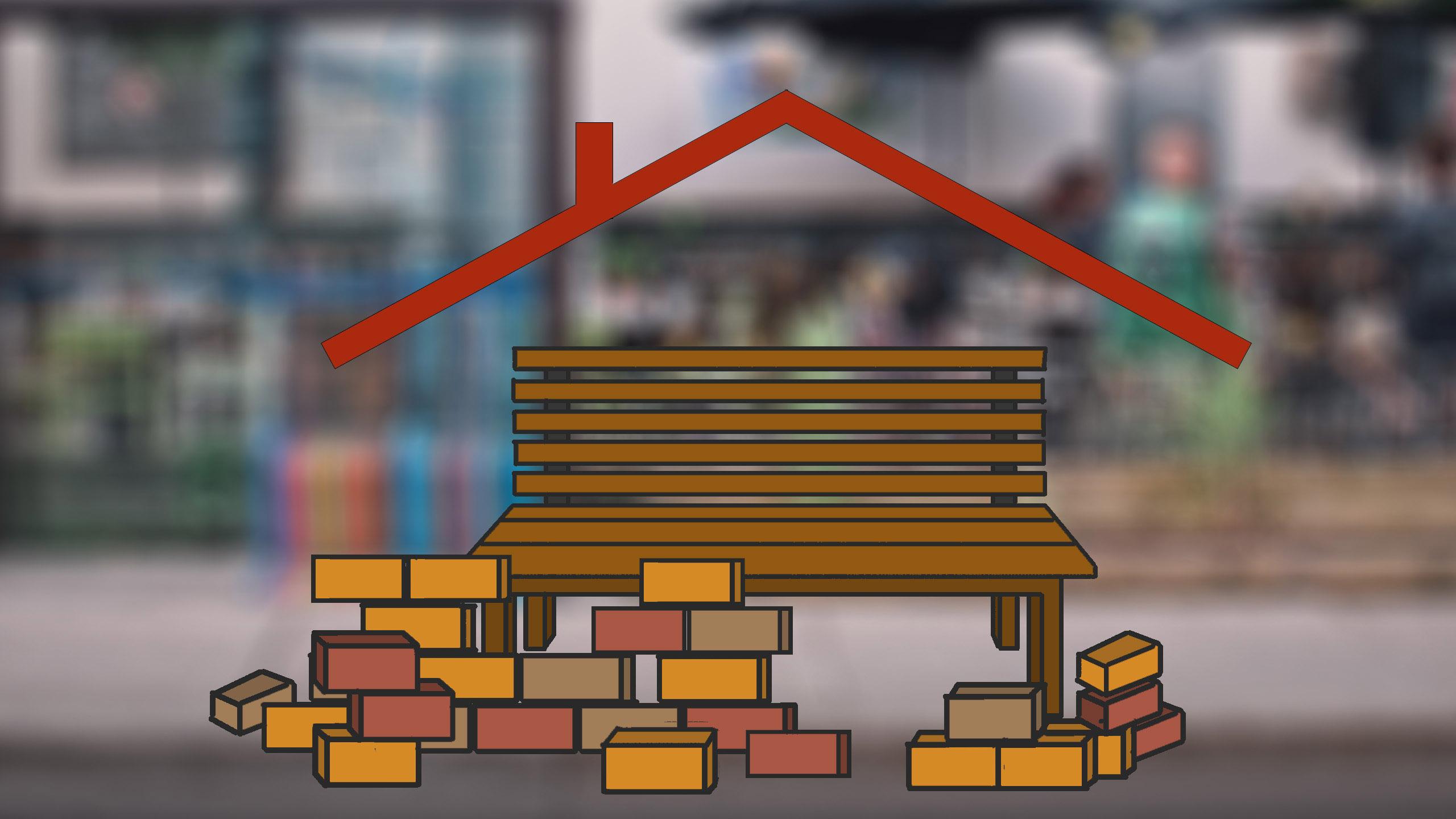By Kiernan Green
Being in Toronto’s homeless shelter system is “like riding an overstuffed subway or streetcar,” said Dana Dack, a harm reduction worker for Sistering, a Toronto non-profit for homeless or precariously-housed women.
“You have no space, you can’t breathe, and you start having anxiety,” Dack said. “At least when you get off of the subway or streetcar, you can go home.” This isn’t the case for those living in Toronto’s shelters.
The City of Toronto’s homeless shelter services are in immediate need of 1,500 additional beds for those in the homeless community, said Toronto Frontline Agencies and Advocates’ (TFAA) earlier this week during a press conference at Toronto City Hall.
“We have a shelter system that’s at 100 per cent capacity, and countless people are living in overcrowded, unsuitable and unsafe housing,” said Teya Greenberg, a coordinator at Sistering, on behalf of TFAA. “We know we need 1,500 permanent shelter beds in the system and we need them now.”
TFAA is a coalition of 16 Toronto public health groups including Street Health, Sistering, and Regent Park Community Health Centre.
Greenberg and TFAA oppose the city’s current proposal to add 280 emergency shelter beds in 2018 and 1,000 shelter beds over the course of three years. The TFAA said the current proposal shows “ruthless disregard for the well-being of the poor.”
Toronto’s shelter crisis, including the need for 1,500 additional beds, is a result of decades of “willful ignorance” towards Toronto’s housing policies by the city government, said Pascal Murphy, a Ryerson professor and expert on homelessness in Canada.
“We absolutely need the beds, because the alternative in the immediate future is to let fellow Torontonians die.”
According to Health Providers Against Poverty social worker Drew Silverthorn, 94 of Toronto’s homeless died in 2017.
Given Ryerson’s downtown location, Murphy said there is a possibility that homelessness “just becomes a part of the landscape” in the eyes of students, and “isn’t seen as a part of the crisis it truly represents.”
He said he hopes seeing street involved people around campus brings a desire for change to students. He said that Ryerson is “well situated to be a leader in this crisis.”
According to Danielle Koyama from Street Health Ontario, Toronto’s homeless shelters have zero vacancies despite a city mandate to keep capacity under 90 per cent. Toronto’s temporary respite and cold weather drop-in centres have also started to shelter around 750 people nightly.
None of the eight temporary respite centres reviewed in Toronto by the Health Providers Against Poverty met the emergency shelter standards set by the City of Toronto or the United Nations, meaning those that do get access to shelter beds are subject to overcrowding.
Clients from each respite centre reported high levels of stress, lack of safety, incidents of theft, and witnessing sexual violence due to poor conditions. At some centres, two toilets are shared between 50 to 70 clients.
Riley Peterson, a first-year urban planning student and Toronto Youth Cabinet Budget Lead, said she supports student advocacy to address Toronto’s crisis of homelessness.
“Ultimately, it comes down to thinking about the kind of city we want to go to school and/or live in,” she wrote in an email. “We’re students in the Ryerson community but we’re also part of the wider Toronto community; being apathetic and satisfied with the status-quo has gotten us to this point.”
Although he believes the additional shelter beds are important and necessary, Murphy said that they are is a “Band-Aid solution.”
“If we wish to solve homelessness, we must tackle the crisis of affordable and supportive housing in this city,” he said.
“[Torontonians] are literally dying. If this is something you want to see changed, then make it known.” Murphy said it is important to make your opinions known to city politicians because they are the “people who work for you.”
“Have the conversations around your dinner table, email your elected representatives, and sign online petitions.”










Leave a Reply